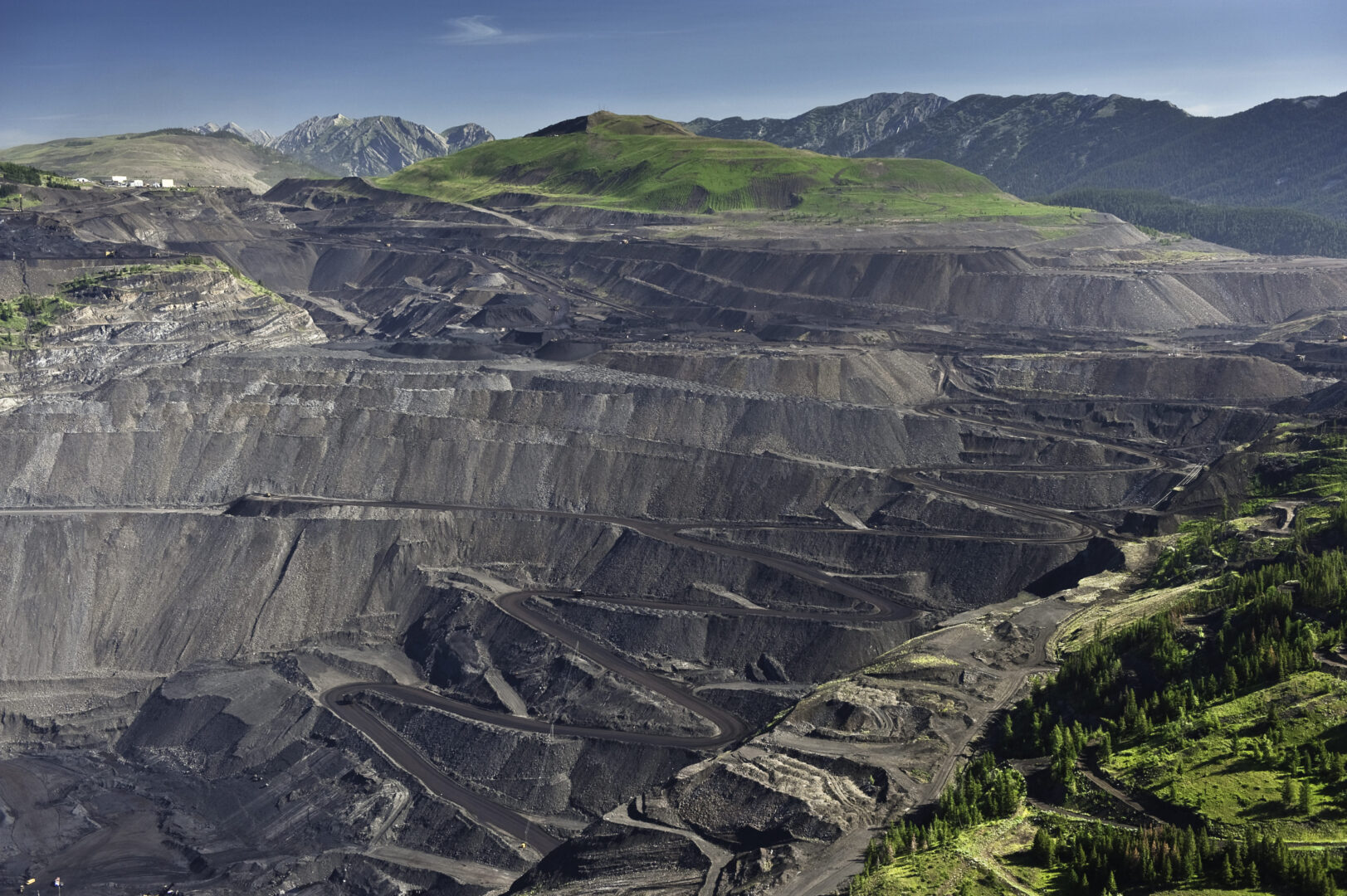Fernie, B.C./Qukin ʔamakʔis — The federal government will be required to answer questions as to how it is protecting Canadian taxpayers as part of its review of Glencore’s takeover of coal mines in British Columbia’s Elk Valley, thanks to a legal petition filed this week by Wildsight and Ecojustice
The Swiss-based mining and commodity giant’s US$6.9 billion acquisition of the mines from Canadian-owned Teck Resources was announced last November, but is subject to the federal government’s approval under the Investment Canada Act.
“This petition will legally oblige the government to answer questions regarding how its final decision factors in the significant and foreseeable liability to taxpayers around the cleanup of these mines,” says Casey Brennan, Wildsight Conservation Director.
Selenium-contaminated run-off from the five Elk Valley coal mines has caused an international water pollution crisis, impacting waterways from the B.C. towns of Sparwood and Fernie to communities across the border in Montana and Idaho.
In March, a Wildsight-commissioned report revealed that taxpayers stand to pay billions of dollars for the cleanup of that pollution due to insufficient reclamation securities held by the B.C. government.
A reclamation security is a financial assurance, often referred to as a bond, that mining companies must provide to the province to cover environmental reclamation and remediation costs in case of insolvency or emergency. It is designed to ensure the financial burden associated with clean-up costs falls on industry rather than taxpayers.
“The financial risk to taxpayers will increase exponentially if ownership of these mines passes from Canadian owned Teck Resources to Glencore, a foreign entity that has publicly declared its intention to spin-off the mines within two years of the sale going through,” Brennan says. “We want to know how Ottawa is factoring that risk into its decision making, and what it’s doing to make sure polluters, not taxpayers, pay.”
The joint petition was submitted to Canada’s Commissioner of the Environment and Sustainable Development Jerry DeMarco on Monday after being prepared by Ecojustice lawyers with support from Wildsight.
“Pursuant to Section 22 of the Auditor General Act, Commissioner DeMarco is legally obliged to pass our petition on to the federal government,” says Fraser Thomson, Ecojustice staff lawyer. “From receipt of the petition, the appropriate ministers must consider and respond to all eight questions posed by it within 120 days. This process will force the government to respond on the record for all to see,” says Fraser Thomson, Ecojustice lawyer.
“Is the government carefully considering how Glencore’s takeover will impact Canadian taxpayers, species and landscapes? How is it factoring Glencore’s environmental track record into its decision? To what extent has it assessed Glencore’s human rights track record under international agreements such as UNDRIP? These are all questions that we hope to get answers to,” Thomson says.
A final decision is expected on the proposed takeover within the next few months. Wildsight and Ecojustice hope the federal government will place conditions upon the sale that require Glencore to post adequate reclamation securities to protect taxpayers, the environment and local communities in the Kootenay watershed.
About:
Wildsight is a registered charity that protects biodiversity and encourages sustainable communities in Canada’s Columbia and Rocky Mountain regions. We work with industry, scientists, the teaching community and all levels of government, including First Nations, to shape and influence land-use decisions, guide practice and steward change on the ground. At our heart, we are a grassroots organization, harnessing our power from the people whose lives affect and are affected by our work.
Ecojustice uses the power of the law to defend nature, combat climate change and fight for a healthy environment. Its strategic, public interest lawsuits and advocacy lead to precedent-setting court decisions, law and policy that deliver lasting solutions to Canada’s most urgent environmental problems. As Canada’s largest environmental law charity, Ecojustice operates offices in Vancouver, Calgary, Toronto, Ottawa and Halifax.
Images:
- Waste rock visible in an existing mountaintop removal coal mine, near Sparwood, Elk Valley. Photo by Garth Lenz / ILCP RAVE
Background:
- Wildsight-Ecojustice petition to Canada’s Commissioner of the Environment and Sustainable Development Jerry deMarco, submitted June 17 2024
- Review of reclamation security addressing selenium contamination from Teck Coal’s Elk Valley mines, Burgess Environmental, March 2024
- Press release: Glencore entered guilty pleas to foreign bribery and market manipulation schemes, Office of Public Affairs, U.S. Department of Justice, May 24 2022
- Transition minerals tracker: 2022 analysis, Business and Human Rights Resource Centre, June 2023
- Outlines 70 allegations of human rights abuses against mining projects Glencore was involved with between 2010 and 2022
- B.C. coal mines linked to record-breaking toxin spike in U.S. waters, study says, Stefan Labbé, Vancouver is Awesome, November 21 2023

